|
Our Darkest Day is Here and Now
Quiet, isn’t it? Hardly a car on the road, not a soul in the lane, no beer in the pub. That’s the sound of submission and acquiescence; that deafening stillness is freedom’s dying, silent scream. With hardly a murmur of dissent, the sheeple of Britain have applauded the theft of their personal freedom – all in the name of a disease less deadly than the annual ‘flu season. Last Tuesday was the darkest and most shameful day in our history. We will live to rue the day. The blustering dolt we elected to the office of Prime Minister imposed sweeping draconian restrictions on every single one of us. Yes, the loveable clown, Blundering BoJo, seized almost absolute power with hardly a dissenting murmur of concern. Hardly anyone said a dickie-bird about it. It was a supremely slick seizure of power: any common-or-garden dictator would be envious. They call it “Lockdown” – because it’s so much less inflammatory than “House Arrest”, don’t you think? The media praised and the public applauded, not counting the losses or considering the legacy we are bestowing on the next generation and many generations still to come. And so began a suicidal, manufactured, economic catastrophe, in which our kids have been sold into future slavery to pay back the mountains of imaginary money borrowed by government to be thrown willy-nilly at the smoke and mirrors “pandemic”. Cowardly people-pleasing politics, exalting the Sacred Cow of the NHS, or something altogether more dark and sinister? Let’s be clear here: people will die of COVID-19, because viruses kill people – especially sick people. Viruses are a fact of life. People die. That’s a fact of life. But the choices being made “on behalf of the British People” seem to miss those two vital facts, and the ensuing immorality of selling my son, and all of your sons and daughters into a lifetime of debt slavery is beyond me. My gorgeous boy and every single one of your gorgeous girls and boys will be gifted the debts of these cowardly politicians, goaded into action by the corrupt media and the mass outcry of the gullible herd. It sickens me to see Britain – and much of the World – spooked by a so-so disease which has been marketed as a “pandemic” by the corrupt World Health Organisation. Frankly, it’s unbelievable that the WHO is taken seriously by anyone. This is – after all - the same World Health Organisation which thought Robert Mugabe (the notoriously corrupt former president of Zimbabwe – yes, that Robert Mugabe) would be a suitable “Goodwill Ambassador”. The same World Health Organisation whose Director-General is accused of suppressing news of Cholera epidemics in Ethiopia and Eritrea in order to shield political cronies. Mugabe was forced out of the post after a day or two, but the stench of corruption hangs around the WHO and Dr Tedros, who remains in office to this day. The WHO estimates that up to 650,000 people die of ‘flu every years – COVID-19 stands at a paltry 47,174 deaths. Flu doesn’t blow-up the economy, neither does it rob people of their freedom of movement and association, the right to assemble, or put them under house arrest. We’ve always had ‘flu and we probably always will. We’ve always had freedom, of a sort, but not any more. How many lives would Government spend to fight a hot war for freedom against an oppressor? Many, many times more than C-19 will cost. But the unfought battle is already lost. Freedom will be returned to us, but not in full. There will be no full roll-back of the “Johnson Decree”. We, and all our children – and all of their children - we will all be poorer as a consequence of this irrational madness and the monstrous theft perpetrated in broad daylight. The story so far:
And the future?
I don’t know about you, but that looks pretty grim to me. But the biggest loser was our collective ability to think. To dispassionately consider the facts, look beyond soundbites, disreputable politicians, self-appointed “experts” and government sidekicks, to ask difficult, penetrating questions and be courageous in the face of Truth. The war has already been lost, and in War the first casualty is Truth. Lockdown is the new Normal, so get used to it, because it will get worse – probably much worse. Little by little the ratchet will be applied: tightened, released a little, then tightened a little more; over and over again. You were warned, oh yes you were warned.
2 Comments
The Thursday Thesis – 21/2/2019
As everybody knows, we live on a mis-shapen spinning ball of rock. It’s a very nice ball of rock, casually hurtling through space at a breathtaking 67,000 mph – that’s around 18 ½ miles per second; which is knocking on in anybody’s book. But that’s just its orbital velocity – its speed around the massive ball of bad-tempered plasma and nuclear fusion reactions which we call The Sun. That very same Sun is also in motion around the centre of our galaxy, at the brain-frazzling speed of 137 miles per second – that’s a whopping 493,200 mph. Naturally that means the numerous celestial bodies in orbit around The Sun are also zipping through space at stupidly fast speeds. So, The Earth is doing 67,000 mph, plus 493,200 when travelling in the same plane as The Sun’s motion around galactic centre, for a total of 560,200 mph. Now imagine yourself standing on the equator, where there speed of rotation around The Earth’s axis is greatest – just a smidge faster than 1000 mph. Add that to The Sun’s meandering speed and Earth’s orbital velocity and we’re doing up to 561,200 mph while we sleep. Now we have to remember that our own galaxy itself is in motion – at around 1.084 million miles per hour! Stop The World – I want to get off! That’s why I never tire of watching the stars at night in some remote nook or other. Sometimes there will be meteor showers, and every so often – for instance a few weeks ago – a lunar eclipse. The sky is beautiful, magnificent, terrifying, unfathomably vast and ever-changing; sprinkle in the fireworks of meteors when we pass through the debris fields of ancient comets and it’s a sight like no other. When was the last time you stood, silent and still, in the inky blackness and just looked upwards? And here’s the thing: Go and do it. Grab a flask of steaming coffee and take yourself to a dark place, then sit back and just watch the skies. See what you see, drink it in and notice it. If it makes you feel good, go “Wheeeeeehhhh!” at the thought of how fast you are travelling, all the time rooted firmly on the spot. If you want a puzzle to mull over whilst you’re there, here’s one I like – the ISS, or International Space Station. Measuring almost 110 meters long and 73 meters wide, the ISS is about the same size as a football pitch, looping around Earth at 17,500 mph. This is what puzzles me: I’m out in the wilds at night, on the shadow side of The Earth, looking up at a football-pitch sized structure that’s whipping across my field of view at nearly 5 miles per second. And the ISS is not self-luminous, but it still appears as a bright dot traversing the sky. So I’m wondering how it is that I can see an unlit footie pitch 250 miles away, in the dark, as it wazzes past at seventeen and a half thousand miles an hour? Buggered if I know, to be honest; but it seems to be incredible unlikely to me - how about you? © Neil Cowmeadow 2019 Please Like and Share The Thursday Thesis with your friends, family, and your invisible friend. I’d love to hear your comments, along with any ideas you’d care to hurl at me. [email protected] The Thursday Thesis – 27/12/2018
Have you ever looked back at something you believed in and wondered “How did I ever believe that load of old cobblers”? We all get fooled sometimes, and it’s human nature to cling to our beliefs. We resist change and tenaciously hang on to what we think we know – even in the face of overwhelming evidence to the contrary. When we are very young we are told stories by our most credible sources, featuring characters such as Santa, the Easter Bunny and the Bogey-Man. Eventually we grow up and realise we’ve been misled and shrug it off as naivete: we were just kids, how could we know? But as adults our beliefs’ defence mechanisms are much more developed – we’ve had years of practice and our beliefs have become much more entrenched as a result. The more I’ve read, the more I’ve learned, assimilated and synthesised – just as you have. And as a consequence, some old beliefs have toppled – mostly about the “guitar heroes” I was peddled as a spotty teenager with a Mr Spoon haircut and a fashion sense that thought flares were a great idea, deep into the 80’s... But I had another hero, and he had feet of clay, too : Apollo 11 Mission Commander Neil Armstrong. I grew up fascinated by space, science and the “Space Race” – the Cold War battle for supremacy between the USSR and the good ol’ US of A. At the head of the exalted ones was always Armstrong, with Buzz Aldrin, Yuri Gagarin, Ludmilla Tereschkova, Gus Grissom and the others trailing a mile behind in the parade of spacefarers who led the way to the New Frontier for off-planet exploration and colonisation by my generation. These days, of course, I don’t believe a bloody word of it. Nope, not for a moment do I now believe that America landed on the moon in 1969. I suggest you brace yourself for 2019’s inevitable US tub-thumpin’ and flag wavin’ celebration of the Apollo 11 mission, because it’s going to be laid out right in front of us all over again, and it’s the greatest lie ever told. We are invited to celebrate the passing of 50 years since Neil Armstrong supposedly set foot on the lunar dust. Now, 50 years later, we can’t go back. According to NASA we’ve “lost the technology” that took the boys there. We can’t go beyond the Van Allen radiation belts until NASA has “proven that it can be done safely”. Odd – they seemed to do it routinely 50 years ago... They could just use the old space suits that the Apollo guys had – except that they did not feature radiation protective layers... NASA are busy developing the rocket to go back to the moon... 50 years ago the Saturn V rocket did this routinely. NASA could easily refer to the old mission data and simply re-run the Apollo missions instead of spending billions developing a launch vehicles...except they’ve “lost the data”. You couldn’t make this up: the evidence supporting Man’s Greatest Achievement isn’t there any more? You’re shitting me, right NASA? Not a bit of it. “Oh, but there are the photographs from the moon” I hear you cry – outraged that I should doubt a branch of the US Government. The cuddly old USA wouldn’t lie to us, would they? Of course not. America is the World’s Number One aggressor state, with a tally of military and CIA interventions ranging from subversion and covert perversion of free and fair elections to out-and-out invasion and mass murder, so we can trust them. If they say they went to the moon, they went to the moon. I just can’t buy it any more. You see it’s the photos that NASA say proves the story which demolish the myth. They are the smoking gun of fakery. In fact, my own doubts really began with the Apollo photographs: those stunning images of a glorious moment in man’s history. Back in the day I was a keen photographer, shooting freelance for the local paper, weddings and portraits. I shot vast numbers of photographs and even had some featured in the UK’s top photography magazine. I did my own darkroom work, too – all the processing and printing; avidly studying every part of the process from composition to final image via re-touching, image manipulation and finishing. Busted: I was a geek. And that’s the problem: I began to look at NASA’s finest images from a geek’s-eye view. That’s when I knew something wasn’t right, that NASA’s story made no sense at all. The more of NASA’s information I read, the less things made sense. First there were the cameras used “on the moon” – the Hasselblad EL model. ‘Blads are still the Rolls-Royce of cameras – and naturally I couldn’t afford one, but I’ve owned several similar medium-format cameras over the years so I understand their operation and limitations. Even back in the 80’s with cameras of that type, you had to do everything manually – there was no Automatic anything. Before you pressed the shutter you had to meter the light and calculate shutter time and aperture settings to ensure that the film would be correctly exposed. Too much light burned-out the highlights, too little light and details would be lost into shadows as highlights became murky grey splodges. Apollo 11 carried no light meters, and without a light meter, every exposure setting was just a guess. Focusing had to be done by eye, peering into the viewfinder onto a matte focusing screen to make sure the inverted image on the screen was sharp. The cameras had no automatic exposure controls, no light metering, and no automatic focus. And that’s what NASA sent to the moon! The astronauts’ EL units didn’t even have viewfinders to set up the shots, since they were mounted on the chest of the spacesuit and the helmet assembly didn’t allow the astronaut to see the camera’s controls. Then there was the film in the Hasselblads. Some films coped better with under or over-exposure than others and some films were famously difficult to expose correctly – especially films that produced transparencies (slides) instead of negatives. Among the most notoriously flakey films was Kodak Ektachrome - a transparency film with little latitude for errors in exposure. And naturally, NASA sent Kodak Ektachrome to the moon. To allow for the lack of latitude of film or in particularly important circumstances, it was usual to “bracket” every shot. That meant taking two extra shots at higher and lower exposure settings than normal, ensuring that we had the best margin for safety on critical images, such as weddings and special occasions. But at the singular moment of man’s greatest technical triumph, every shot was a one-off. NASA didn’t even bother with bracketing. So here’s the problem: we have gorgeously composed, beautifully exposed, dead-on-balls-accurate images with no bracketing for safety; allegedly taken by men in armoured gloves, operating blind with no way of seeing what they were shooting, no means of measuring light, in a hostile environment, using all-manual cameras to expose one of the world’s most picky films at the unique moment in man’s history where nothing could be left to chance. That’s why the Apollo 11 moon pictures are the smoking gun that proves the USA’s moon landing story is fake - because nothing about them makes sense. Every single technical detail about them is wrong. And that’s before you begin to analyse what is in – or not in - the actual images; their multiple light sources, the absence of star-fields, the cross-hairs that disappear behind objects in the images... It’s all on NASA’s website, go and check it out for yourself. And what about my hero, Neil Armstrong? Well, he and his crew squirmed and flinched their way through a couple of press conferences, before withdrawing from public life to a great extent, reluctant to discuss their supposed adventure. Screw that! If I’d gone to the moon I’d want to tell every single person I met about it, wouldn’t you? Watching the press conference footage now, I see three scared men, embarrassed and unsure of their answers; only able to answer questions in language that distances them from their lunar odyssey. Not one of them says “I saw...”, “I did...”, or “I felt...” because they never went to the moon and couldn’t bring themselves to use such direct language to describe what they hadn’t done. Between them they couldn’t even decide whether they could see any stars from the moon’s surface – despite its lack of atmosphere and the desolate blackness of the bitter-cold lunar night. Back in 1969 the lie was easy to pull off. In 2019 we’ll be sold the same lie all over again. I’m not buying it – what about you? © Neil Cowmeadow 2018 Please Like and Share The Thursday Thesis with your friends, family, and your domesticated Ravenous Bugblatter Beast of Traal. I’d love to hear your comments, along with any ideas you’d care to hurl at me. [email protected] Episode 118 - What Price Slavery? The Thursday Thesis - 27/09/2018 If someone offered you the chance to buy yourself a job as a slave, to be on-duty 24/7, required to respond to the pettiest of things without delay, to never have a day off or to leave the office; to be tracked, followed and recorded everywhere you went, records kept of everyone you spoke to, and everything you wrote or read, what would you say? You wouldn’t take that job, would you? I jumped at the chance, myself – as most people have. For me, it began with brick-sized Orbitel mobile phone, back in the early 90’s. A couple of years later it was The Internet and the speed of a roaring 14K dial-up connection. As a relatively early adopter I even thought I was treading boldly into the future! Over time the technology has improved: faster data speeds, mobile apps, GPS and a host of other gizmos. Analogue phones have given way to digital networks, second-generation, 3G, 4G, soon we’ll have 5G networks promising better connectivity and coverage, faster speeds and lower cost. And it’s gradually dawned on me – as it has for others – that I am little more than a slave to my devices. A slave who pays to be enslaved, because every month EE take money from my bank account - they have written permission from me to do exactly that. And every time I use my phone or my laptop I provide data to EE, BT, Google, Mozilla, Microsoft and just about everybody else, it seems. My data – and yours – is used to develop algorithms that are supposed to make things better for us. But here’s the thing: it doesn’t make things better – it makes things worse, because all the harvested data is used to develop insight into us, our thoughts, our beliefs, relationships. Where we go, how we move, and what we say is used to develop better programming for artificial intelligence – AI – that learns and evolves faster than organic life-forms can. The Big Brother state of Orwell’s 1984 has nothing on the current state of affairs. Orwell’s horrors were the Telescreens, which watched and listened from their place on the walls: ours do it from our pockets and handbags. Personally, I have a ton of issues with mobile phones, here are a few of them:
We slaves pay out masters with our taxes and our monthly direct debits. We are slaves who worship our masters Slaves who are anxious when parted from our masters. Slaves who crave the sound of our masters’ voices. Slaves who willingly pay to be enslaved. If you thought that your mobile phone would set you free of the need to be in the office, or would mean you never had to wait in for that special person to call, then I can guarantee you won’t have seen it coming. So, here’s a challenge – I call it the Freedom Day Challenge - can you go for one day, just 24 hours, without your phone, PC, Mac or tablet? Any takers? If this got under your skin, made you smile or pissed you right off – hit the like button to Share it with your friends, family, and anyone else.
Email me at [email protected] Episode 112 - Losing My Religion
The Thursday Thesis - 06/08/2018 You - like me, and like pretty much everyone else around us - grew up in the shadow of Science and Mathematics , the so-called “Queen of the Sciences”. To keep it simple, I’ll lump Mathematics and Science together and call them “Science”. Science was drummed into us in school and was generally considered to be a very good thing indeed. Our science teachers were – at least to me – the keepers of The Knowledge – handing down morsels of erudition from the high table of the great minds: Newton, Einstein, Rutherford, Darwin, and the rest of that rabble. In the absence of evidence for other people’s gods, science became my god – because it made everything understandable with its Laws and Universal Constants. Then there was this thing called The Scientific Method – this is the route by which ideas are suggested, tested, reviewed and proven. It goes something like this: let’s say that I have a brilliant idea (stop giggling, because it could happen) a spark of genius so dazzling that it will change the world forever. I cobble together an experiment that proves my idea to be an absolute belter and I write a properly formatted scientific paper and send it off to other scientists for “peer review”: this is their chance to poke holes in my idea and prove me wrong. This is a good thing: giving other people the chance to disprove my idea, or “falsify” it is Science’s way to eliminate the unworthy. In Science, nobody gets a pass and every new theory has to stand up to scrutiny. Now, just to add a bit of intrigue, I’ll mention that theft is common within the peer-review process and there are plenty of well-documented cases of intellectual theft in the history of Science. This is not just a modern problem where vast amounts of money, job security and fame are at stake. In fact, Newton seems to have been a particularly good thief – and, as President of The Royal Society at the time - he could behave more-or-less as he pleased and knobble anyone who stood in his way. “Why are you banging on about peer-review?” you ask impatiently. Well, here’s the thing: Scientists are reviewing new theories and ideas from the standpoint of Science, and there are jobs, money and prestige at stake. Now, if I show up with my brilliant idea and change everything, then the Scientists reviewing my work are suddenly out of work. That’s where my faith in Science faltered and fell: the gatekeepers appear to be more interested in protecting their positions, incomes and the status quo than expanding the range of human understanding. Real scientists follow the observable facts – the data – rather than dismiss the data because Science says that the data is wrong. And God forbid that any data breaks Science’s Laws makes it through peer-review: these strange phenomena are called “anomalous” and conveniently parked out at the fringes of mainstream Science, rather than dragged into the centre. Anomalous data are a challenge to what we think we know, a red flag that there’s a hole in the theory or that the Laws of Science are not really laws but entrenched ideas that demand to be updated. That’s how Science – if it is to be worthy of the name – should be done: fact should determine theory, rather than the theory determining the permissible facts. The current darling of Science, Quantum Theory, is busily attempting ever more tortuous ways of explaining everything in terms of itself, instead of holding its hands up and saying “buggered if we know” when confronted with the apparent paradoxes of what we understand as the real Universe. Science has no clue at all about remote action at a distance, which defies the Law that nothing can travel faster than the speed of light, and is at a loss to explain the observer effect, where the mere presence of a human being will affect the outcome of an experiment - depending on the human’s intention for the experiment. Then there are the well-documented cases of remote viewing, precognition, the power of meditation to control machines – not to mention all those inventions that have been confiscated and disappeared from the public records. And there’s Dark Energy and Dark matter, where “Dark” means “we can’t find it or explain it, but we think or know it’s there or should be there. And please, please, please don’t get me started on medicine that hasn’t been able to do a thing for a person’s chronic pain for thirty-plus years, but I can turn off that pain in a few minutes. And then there is the problem of Universal Constants... The problem with Universal Constants (like “Big G”, or G – the gravitational force - and C, the speed of light on a vacuum) is that they change. Science has fixed the speed of light problem by creating a circular reference, rather than facing up to the fact that it ain’t a constant at all. In short, Science is lying to itself and to you and I about the speed of light – and if it’s lying about that, getting caught in that might lead you to ask what else it’s fibbing about. You see, Science doesn’t know everything – not by a long chalk – but it pretends to. Things that happen but which break the Laws of Science are too often shut-down in peer review or dismissed as anomalous data. That’s why I don’t believe in Science any more: it is a useful tool, as far as it goes, but it doesn’t cover everything. And it’s a dangerous situation where a single point of view dominates the discourse and intellectual fascism rules. Science lays claim to absolute knowledge, when all it really has is a rag-bag of contingent theories that don’t always meet the challenges presented by observations of reality. Science is no longer my religion and my faith, but is - at best - a rabble of dubious dogma fit to be debunked by a long, cold examination of the evidence. Science is a self-reinforcing belief system – a fundamentalist religious sect, able only to see with its own eyes, narrowing its perspective day by day. Belief – certainty, often without evidence – is static, ossified, and immovable. Logic and reason cannot assail it, because belief is irrational and not subject to examination. And belief is the barrier to understanding. Belief is the full-stop that ends thought. And everything begins with a single thought... © Neil Cowmeadow 2018 Please Like and Share The Thursday Thesis with your friends, family, your cat, unicorn and anyone else. I’d love to hear your comments, along with any ideas you’d care to hurl at me. [email protected] Episode 101 - That First Date... The Thursday Thesis - 31/05/2018 As first dates go, this was a stinker – the food was divine, the service immaculate, and my date was... well, beautiful, graceful and vivacious. So she was not the problem, but there was something going terribly wrong. “Aha!” I got it, I knew what it was. Her friends had shown up, uninvited and en masse. Our cosy little table-for-two, tucked away in a tastefully lit corner of a carefully chosen Italian restaurant, was being overwhelmed by their incessant chatter. I didn’t invite them to join us, but they came anyway, the bastards! She reached across to pick up her phone once again, did the screen-swipe thing and stared at me. I raised my eyebrow – a silent question... That was the last time I saw her phone that night. Come to think of it, that was the last time I saw her, too. It seems she didn’t like the message I’d sent to her across the table, via satellite: it read “Look at me. Talk with me. Put away your phone and let’s be human with each other, please.” She texted to say that it wasn't going to work, but that wasn't exactly any kind of news to me. “No biggie...plenty more fish...” I reasoned. Look around you: you see it everywhere – people together, but estranged. From the couple at dinner to the family at play, phones intrude and headphones exclude. How stupid have we become? When you’re with someone, really be with that person; give them your undivided attention and show them some Love. Don’t put the things that matter most at the mercy of the things that matter least: don’t make your kids, your wife, your date or your friends play second fiddle to a Tweet, Facebook update, text message or anything else. Be with them. Be with them completely, and pay attention. Leave your phone in your bag when you are at dinner with your date, partner or spouse. Leave it in the car when you’re with your kids. Believe me, nothing that is more important than the person you are with will come through your phone in the moments you are disconnected from it. Be with them. Your antisocial media will still be there in all its self-indulgent glory when the special time is over and you’re back on the hamster wheel again. Failing to honour the real, face-to-face skin-and-bone people is tragic and it is immoral. Taking a slice of time from someone’s life to be with them and then offering them only the fag-end of what’s left after you’ve “kept up to date” with everything else is a bloody insult to them. Don’t do it. Be with them. Look around you and you’ll see masses of people, hooked up to – and hooked on – their phones. Notice how often they (we) check for new messages – even at inappropriate times? We’re like a bunch of crackheads in need of a score every thirty seconds – it’s pathetic and it’s tragic. Ask yourself, honestly, do you own the phone or does it own you? Now do yourself a big one - write this down: Leave your phone in the car, put it in your bag, silence it completely. If you have balls of steel you could even turn it off – if you think you’ll be able to cope with the anxiety that you will feel should you dare to do such a thing. Put your headphones away and grow up! © Neil Cowmeadow 2018
Sharp Dressed Man... The Thursday Thesis - 08/02/2018 Steve Jobs was never known for being well-dressed, was he? The Apple founder was invariably seen wearing jeans and a black turtleneck jumper, sort of scruffy, but very much in keeping with Steve Jobs’ projected personality. Why would such a successful entrepreneur wear the same clothes every day for most of his life? Where are the gorgeously tailored Armani suits, the hand-stitched shoes and mega-dollar watches? Not a trace of them. Now here’s the thing: Jobs was both making a statement and defining himself. Effectively he’s saying “here I am, I’m not interested in conforming to how you expect me to be: you must accept me on MY terms”. It ties into Apple’s famous “Think Different” ad campaign, as Jobs defies the conventional image of a corporate success. But the real power of that turtleneck is what it gave Steve every single morning: clarity. You see, selecting an outfit from a huge wardrobe takes a certain amount of effort – it’s actually a stressor. Steve Jobs was savvy enough to know that his finite attention was too precious to squander it on the trivialities of how he dressed from one day to the next, so he made a strategic decision to only buy blue jeans and black turtlenecks. That turtleneck eventually became a part of Jobs’ personal brand – it shows up in almost every photograph of the guy. Inevitably, I decided to try out having my own dress code for a little while... All of my T-shirts went into black bags for the trial, and were replaced by 6 long-sleeved grey jerseys and 6 grey T-shirts – nothing fancy, just Marks and Sparks’ own brands. The first few days were strange – the drawer missed my brightly coloured T-shirts, and I was close to rummaging in the black bags for that red shirt I love. But, in the name of research, I stuck with it – even though it was weird. After just one week I found myself relieved that I didn’t have to think about what to wear. Now I just open the drawer, take out a grey jersey, and get on with the day – it’s so easy. Bizarrely, having a huge choice of colourful T-shirts was actually a bad thing; and having no choice was a very good thing. Steve Jobs was no dummy, was he? Please remember to Like and Share this post.
Pass it on.
The Thursday Thesis - 04/01/2018 I confess... last night I bunked-off. When I really should have been writing this post I was mucking around doing a Facebook live video, aiming to share the way that poor/inefficient technique gets in a guitar player’s way and makes life harder than it need be. Why do I tell you this? Because of the responses it produced. Now, some folks “got it” and liked the clip, but a lot more people didn’t get it and gave me some feedback, suggesting that I am a “soulless hack” and a “limited player” on the basis of me explaining mechanical principles as they apply to guitarists. This was to be expected though, because I understand that it is our human nature to defend our current belief systems in a drive to prove ourselves “Right”. As a species we absorb and adopt all sorts of ideas and beliefs, usually without being aware of it happening. If an idea works once, we’ll probably try to do it a second time because it worked before. If it works a second time we’ll use it again and again until it becomes our normal way of operating. Now here’s the thing – clinging to one idea and refusing to test or consider alternatives locks the mind into a prior point in time, shutting-out the chance to learn and grow, to do something better. We humans are funny creatures, aren’t we? What we currently know, we will defend. Opinions which contradict our current understanding of how things are make us feel threatened, so we will usually fight back against new ideas. That’s why the comments were mostly from those who didn’t get it. The risk is that the scary new thing could be exactly what you need. That new thing could be the mental equivalent of an upgrade to your computer software that finally fixes that bug... What we currently know could be causing us to push away the thing we really need to know. History is littered with the bodies of dead dogmas which have been superseded by innovations and discoveries. That’s progress. What do you currently believe that you’d like to be wrong about? What do you “know” that you’d like to change? What is it that you are sure of, right now, that you would like to be unsure of? Please Like and Share The Thursday Thesis with your friends, family, and your cat. I’d love to hear your comments, along with any ideas you’d care to hurl at me. [email protected] © Neil Cowmeadow 2018
The Thursday Thesis - 30/11/2017 Just suppose that you figured out how to transform almost everything that you currently hate or are bored by into a joyful experience – how would that feel? You can, all you need is drugs. Seriously, drugs do the business: but the drug I’m talking about is dopamine - your body’s natural feelgood chemical. Your amazing body floods with dopamine every time you complete a significant task or achieve something you consider to be important. Unimportant things are sort of “Meh!”, whilst important ones are “Yeah!”. The key is the importance we attach to the things we do: if it’s important, we are rewarded with a rush of dopamine. The secret – I believe – is to make it all a game, then get busy playing. Since everything is a game, everything is fun. And since I’ve chosen to play this game, it must be important to me, right? When I’m teaching guitar, the game is to outwit the student’s blocking mechanism and make a commando raid on their preconceptions, freeing their imprisoned potential to make music. When that mission is accomplished I get a MASSIVE buzz of dopamine and I want to do it again. If I’m working on a book, the game is to herd all my thoughts into an order that makes sense, then rummage around for the right words to express my thoughts, pulling them one-by-one from the ragbag of my mind. And when I’m working in my property business, the game is to outwit my own fears and preconceptions, to go into battle with – and slay - the dragons that roam my psyche. Am I working, or am I just playing? To be honest, the borders blur and work becomes play: I haven’t done a day’s work since I learned this principle, and there are days when I resent sleep and the need to put away my toys for the night. So here’s the deal: Go Fun Yourself. Spend 17 minutes, today, re-framing the dull stuff into a game or two – then go play. Game On! © Neil Cowmeadow 2017
Like and Share The Thursday Thesis with your friends, family, and your cat. I’d love to hear your comments, along with any ideas you’d care to hurl at me. [email protected]
The Thursday Thesis - 16/11/2017 People are strange creatures, and some are stranger than others – perhaps that’s where you and I fit in... So here’s an interesting phenomenon with parallels in everyday life; see if it resonates with you, and if you know any crabs. Take your kid crab fishing for a few hours... Hopefully you’ll catch a load of crabs and drop them into your bucket, then you can watch them doing their thing. Now, do you see that greenish one over there – the one trying to climb out of the bucket? Notice that he gets so far, then that other crab reaches up a claw and pulls him back down? Yes, crabs in a bucket actually prevent one another from escaping from captivity. And here’s the thing – people do that, too. The people around us – and they’re usually the people who sincerely have our best interests at heart, because nobody else cares – try to hold us back, pull us back into the bucket. They want to protect us from danger and preserve the nice, safe status quo. But if the status quo is making us unhappy...? How is keeping us stuck in a place we don’t want to be in, a job we despise, a relationship that is toxic, ever going to help us? Those grabbing claws are now another thing from which to escape, aren’t they? Our best hope is to find an eccentric crab with a thick carapace who will allow us to climb on their back to assist our escape. Better still, find a crab who has already escaped from the bucket and who will give us an escape map and then pull us out of the bucket. I found my helper crab in a book, after a helper crab named Norman, pointed a claw at it. Here’s the book: Think and Grow Rich, by Napoloeon Hill. The book shops and libraries of this world are full of helper crabs - where will you find yours? © Neil Cowmeadow 2017
Like and Share The Thursday Thesis with your friends, family, and your cat. I’d love to hear your comments, along with any ideas you’d care to hurl at me. [email protected]
The Thursday Thesis - 5/10/2017 I love a good Goal, and - as far as I am concerned – the bigger the better. If it’s a goal you can hang a number on, make it a big number; if it’s a Goal with a date or deadline, make it a real deadline with real consequences. I like the idea of pledging a slug of cash to an organisation you dislike – the only way they don’t get your money is if you beat the deadline you set for yourself. But there are two big problems with having a big Goal. Firstly the big Goal itself. It’s an outcome, a snapshot of the future, distant, remote, and not actionable today. You can’t build a business or write a book, craft a fit body or build a relationship with your life partner in a day. All too often, nothing happens today... The second problem with that Big Goal is its pervasiveness and its hugeness. Certainly, clever people keep their Big Goals in their minds by regularly reminding themselves of what the Goal is and how it looks, feels and sound. But it’s a Big Goal, and it can too easily terrify and overwhelm you, instead of inspire you: I see this all the time with students and coaching clients. So here’s the solution to being overwhelmed by your own Big Goals: just do something, every day, which moves you in the direction of your goals. Simple, isn’t it? That means paying attention to the activities – the PROCESS that produces PROGRESS – every single day. Instead of rocking back on your heels and staring awestruck at your Big Goal, take one tiny step forward towards it. In my book Elephant Sandwiches I shared the simplest, daily tick-box system that I invented to get my own chronic procrastinator arse into gear. The basic idea is that your Big Goals are your Elephants, and that Elephants are indigestible if eaten whole. But slice them up very thin and eat a slice every day, and they are delicious. So the Elephant Sandwich is the breakfast of champions. Get into the Process that produces Progress, every day. Do something. Write 500 words, walk for 10 minutes, make the time. Do Something, today, that brings your future toward you. If it’s a thin enough slice, you can eat it, and tomorrow you’ll be hungry for another. Get started and do something. Today. © Neil Cowmeadow 2017
Like and Share The Thursday Thesis with your friends, family, and your cat. I’d love to hear your comments, along with any ideas you’d care to hurl at me. [email protected]
The Thursday Thesis - 21/09/2017 Malcolm Gladwell devoted a chapter of his book “Outliers” to the idea that it takes around 10,000 hours of practice to achieve Mastery in a field. The book sold well and made Gladwell a ton of money, simultaneously propelling him to the status of credible pundit and positioning the journalist as an expert on learning. But here’s the thing: the 10,000 hour rule was Gladwell’s invention, and it didn’t reflect the essence of the research that he referred to – a 1993 study at the University of Colorado. So when Gladwell declared 'Researchers have settled on what they believe is the magic number for true expertise: 10,000 hours', the chief of the research team, Anders Ericsson, was royally pissed-off. “Gladwell cited our research on expert musicians as a stimulus for his provocative generalisation to a magical number", Ericsson said, then wrote a rebuttal paper entitled “The Danger of Delegating Education to Journalists”. Nice one, Anders. Gladwell’s snappy 10,000 hour “Rule” didn’t take much notice of the real conclusions of the researchers: significant variation of time taken to acquire skills, a variety of practice methodologies, and the apparent non-existence of anything that could be identified as “natural talent”. I get it. I’ve been teaching guitar for 18 years, and I don’t believe in talent, either. There are a pile of books out there discussing Talent with a capital T, but I believe in acquiring the necessary skill – and that means learning from someone else, testing the skill by doing it badly at first, then refining it and making it automatic by consistent repetition. This is exactly like tying your shoelaces or learning to drive a car or ride a bicycle. When was the last time you had to think about tying your laces? So the 10,000 hour fallacy entered the canon of conventional wisdom, along with a load of other unhelpful “wisdom”. If you want to know more about how nonsense like this infects people you’ll find plenty in the blog archive and in my book 9 Weird Things Guitarists Do. You see, I have a problem or six with conventional wisdom, and I have a problem with Gladwell’s assertion of certainty in areas where he is not a practitioner. The 10,000 Hour Rule is a journalist’s opinion, rather than the conclusions of the guys who did the work. And, tragically, the 10,000 hour fallacy deters people from pursuing their dreams because it sets up a high barrier to entry to a new activity – such as learning to play the guitar or any other musical instrument. As my friend and former student, Tom Boddison observed in a recent email questioning Gladwell’s opinion, “10,000 hours is a bloody long time!” And what about Mastery – did you notice that the idea of an observable standard snook in on the coat-tails of the 10,000 Hour Rule? There’s a presupposition that one must achieve Mastery, isn’t there? Bunk! Mastery is neither or relevant when one is pursuing one’s own pleasure and following one’s own path – as one must when engaged in any of the so-called Arts. I say we murder the myth of 10,000 hours! I say we murder the illusion of Talent! I say we murder the mischief of Mastery! I say, let’s get these monkeys off our backs and do our own research! Are we foolish enough to just accept the opinion of a journalist when deciding whether to pursue our heart’s desires? Get yourself a guitar, flute, sax, or whatever – a football or golf club and start hacking. Play some bum notes, miss the net and hack up a few divots - who cares if you suck? This is supposed to be fun, isn’t it? Am I making sense, here – am I convincing you? Get out there and have some fun, make lots of mistakes and enjoy every single minute of it. Fail gloriously - because only by learning to miss the net can you ever hope to score a winning goal. © Neil Cowmeadow 2017
Like and Share The Thursday Thesis with your friends, family, and your dog. I’d love to hear your comments, along with any ideas you’d care to hurl at me. [email protected]
The Answers Have Changed. Albert Einstein famously gave the students on his course the same examination paper two years running. Einstein’s assistant asked the professor if he’d noticed it was the same paper with the same questions he’d set the previous year, to which Einstein replied “It’s not a mistake, the questions are the same; but you see, the answers have changed”. Back in the 1920s and 30s scientific theory was advancing rapidly, so Einstein wasn’t just kidding his assistant – the answers had changed in the intervening year. And isn’t that true of almost everything in life? The answers we have as children and teenagers are different than the answers we have when we are older and our lives have changed: parenthood changes everything, divorce and the death of our loved ones; accidents, injury and illness all conspire to keep the answers we need on the move and elusive. Because everything you currently know is only your best guess, based upon currently available evidence, and that’s the reason why it’s so important to keep learning and to stay curious – because the answers have changed: that’s a fact of life. If you’re not busy finding out those new answers you’ll probably keep on using your old answers, even though your old answers don’t produce the results you want anymore. Think of life as being a long corridor with doors all along both sides: you can’t open a door until you’re right in front of it, so unless you are moving along the corridor you only have access to the one door. Learning and growing is what allows you to progress along the corridor, open more doors and find the answers that you need. So, what are you learning today? It might not be The Answer, but it could be a clue to where The Answer is hiding. Stay Curious. © Neil Cowmeadow 2017
Like and Share The Thursday Thesis with your friends, family, and anyone else. I’d love to hear your comments, along with any ideas you’d care to hurl at me. [email protected]
Magick - The Science of Success Part 2 – The Rituals The Thursday Thesis - 7/9/2017 Every single one of us has our own daily magic rituals, but don’t panic - we haven’t gone over to the Dark Side or contracted religion, so breathe... What I mean is that we all perform rituals every day: we brush our teeth, tie our shoelaces, commute to our workplace, and do a hundred other things every day without really giving it any thought. Our daily rituals help us to get through the day in much the same way that we did yesterday, the day before that, and the day before that, too. Forming a ritual or habit allows us to have a reliable, pre-set way of performing an action. Once we have a ritualised way of doing something we don’t need to think about it, we just do it the same way that we always do it. Ordinarily this is beneficial to us, as we can delegate our performance of a routine task and free-up our resources for other things. So it makes sense to consciously craft our daily rituals to serve us, doesn’t it? Because when we design our rituals to produce what we want we are truly using "...The Science and Art of causing change to occur in conformity with will..." as Aleister Crowley put it when he defined Magick. If you are not already consciously challenging your normal, habitual ways of doing things then today would be a great day to start thinking about how you do things. Chances are good that most of your habits and rituals were learned accidentally and without a thought as to whether they were going to advance you toward your biggest ambition or hold you back from it. Change your rituals and it will change your life. Simply ask yourself “is this helping me or is this hurting me” when you do anything – especially if you do it in a certain way because that’s how you’ve always done it. If it helps you to achieve your defined goals, let it continue: if it isn’t helping, then do something else. Build your own rituals, rather than doom yourself to repeat other people’s unhelpful ones. If you are overweight, change what you ritually buy when you shop: make a list of healthy foods and ONLY buy what’s on the list. I know a guy who does this, and then (bizarrely) rewards himself with a bag of cookies for being such a healthy shopper! That’s certainly a ritual that he might want to change. If you smoke, change your habit of reaching for instant relief whenever you feel a pang of craving: do something else – anything at all - other than lighting up. Prove to yourself that you are not a helpless, pathetic slave to a manufactured addiction. Each morning I use a handful of designed activities to kick-start my day and move me towards my short, medium, long, and lifetime goals – I call them MAGICK, and it’s probably no surprise that it’s an acronym. Movement: exercise and stretching to keep my body fit for purpose. Affirmation: reinforcing my positivity, goals and my reasons for living. Gratitude: recognising the great things in my life and nudging my mind to find more of them. Inner-vision: solitude, meditation and self-examination. Creation: bringing my dreams into reality – I have to do The Work, nobody is coming to the rescue. Knowledge: keep learning and challenging what I know. So there you have it – my MAGICK rituals. What about you – what are the rituals you want to keep in your life, which ones will you change, and which ones will you begin? © Neil Cowmeadow 2017
Remember to Like and Share The Thursday ThoughtCast with your friends, family, and anyone else. I’d love to hear your comments, along with any ideas you’d care to hurl at me. [email protected]
The Thursday Thesis - 31/08/2017 I am a huge fan of self-help books – I’ve read or listened to hundreds of them since I gave up my glittering career as a teenage drunk – and I’ve noticed that they all have two big ideas in common. Since both ideas are super-important and interesting, I’m going to cover one this week and one next week. Firstly, there’s the theme of our will and the power to choose the changes we make in our lives: as Gandhi put it, to “be the change you wish to see in the world”. Call it self-mastery, success, or the secret – call it what you will – it all comes down to "The Science and Art of causing Change to occur in conformity with Will". That’s the thrust of what almost every self-help writer and guru preaches. But hold on a minute - that definition didn’t come from Tony Robbins, Jim Rohn or Napoleon Hill - it came from the English writer and occultist Aleister Crowley, as he explained what Magick is. By the way, Magick is the archaic spelling of the word – it’s not a typo – and since this is my blog, I’m going to flit from one spelling to another, so there! You’d be hard-pressed to find anyone in the self-help field who would disagree with that definition as a recipe for success. So, who was Aleister Crowley? Born in Leamington Spa in 1875, Crowley was the son of a successful brewing family who held Christian Fundamentalist beliefs. At Cambridge he captained the university chess team before dropping out to spend his fortune pursuing esoteric and occult knowledge, sex, drugs and adventures of every kind. In time, his infamous lifestyle earned him the title “The wickedest man in the World”, according to the British press, though he preferred to style himself The Beast 666. But he wasn’t just a sex-mad, drug-taking, bisexual, eccentric genius – though that would be enough for many of us. Crowley was also a journalist, novelist, poet, painter, ceremonial magician, mountaineer, and – quite possibly - a spy for the British government. Yet this libertine defined Magick in terms that closely resemble most modern day definitions of success - as extolled in thousands of self-help books, DVDs, online courses and 3-day “Ra-Ra” guru events in arenas all over the World. It’s interesting, isn't it? Every time you see someone who is exceptional at what they do you’ll notice the same thing: they make it look easy, effortless and completely natural... Almost like magic. Non-experts, like you and me, wonder how they do what they do, what their secret is, and how they make it look so easy. There is something magical and spellbinding about mastery and expertise, but it isn’t magic – it’s just technique and technology. “Any sufficiently advanced technology is indistinguishable from magic” wrote Arthur C. Clarke, the author of 2001: A Space Odyssey, many science fiction books and the inventor of the communication satellite. Our experts don’t have magic on their side – they have advanced technologies and techniques which we don’t have, yet. And the most important word in that sentence is “yet”. “Yet” tells us that we can acquire the skills and habits of experts, adopt their practices and become experts ourselves – “yet” implies that the skills are learnable and that we can learn them, sometime. Follow your “yet” with “but” and you’re really opening the door to change: say aloud “I don’t know how to do it, yet, but...” What else do you want to add to complete the sentence? If you said “I’m gonna” or “I will”, you’re going to learn how to do it, aren’t you? Words are powerful – perhaps even Magical. But there’s no magick to excellence: I ask you, is effective time management magic, weight loss mystical, or success in business esoteric? I don’t think so. And there's no Magic involved when you are learning to play guitar or any other musical instrument, either. Just find an expert guitar teacher, find out how they do it and do what they do. Not what they appear to do, but how they really do it, because if you learn how it’s really done, you know it’s not magic and you can do it, too. Neuro Linguistic Programming (NLP) tells us to model very specifically what experts do and how they think in order to perform just like they do. That sounds like learning to perform a ritual, doesn’t it? Next week we’ll look at the practical implementation of Magick into your everyday life and how to harness the power of Rituals. © Neil Cowmeadow 2017
Remember to Like and Share The Thursday ThoughtCast with your friends, family, and anyone else. I’d love to hear your comments, along with any ideas you’d care to hurl at me. [email protected]
The Thursday Thesis - 24/08/2017 How’s your day going, today? Are you having a good day or a bad day? Now ask yourself “why is this a good or bad day?” Chances are that you’ll credit the good day to something outside yourself: you’ll also blame the bad day on something outside of yourself, too. As a coach, teacher, and human being I have a massive problem with blaming or crediting circumstances for my happiness. Here’s why: happy and unhappy are states of mind. Your state of mind can’t be directly affected by anything external to you – the only connection between outside events and conditions is your interpretation of them. It’s obvious, when you stop to think about it, isn’t it? If the mind exists within our self then external factors cannot directly influence our state of mind because there is no unmediated connection between the external and the internal. And if circumstances are not the direct cause of happy or unhappy states of mind - our response to those external factors is. That’s why it’s so important to govern how we interpret what we hear, think, and believe – to protect us from reacting reflexively to events. I see it all the time in my guitar teaching sessions where it’s very common for students to unquestioningly recite other people’s opinions and preconceptions. They’ll often tell me “I have no talent” or “I’m not good at this”, or any other of the thousands of variations they’ve been given over the years. Their reflexive response is a compilation of other people’s opinions and throw-away remarks rather than the considered judgement of an expert guitarist or teacher. Letting that loop playback over and over again can go on for a lifetime, colouring every event and experience concerning (in this example) playing the guitar. For years – even decades – our response to circumstances and events gets handled by erroneous opinions of other people: we don’t even know that we are doing it – we “just know” we’re “untalented” or “no good at this”. It’s as though we’ve outsourced our responses to events. But that’s our job: nobody else can (or should) do it for us. That job is way too important to unwittingly handover to anyone else, ever. We are in control. When we learn to govern and control our reactions to external circumstances, we are in control of our mind, and thus our state of happiness or misery. And if we’re not in control, it becomes easy to imagine something outside of our self “triggering” us into an irrational state of mind. “Getting triggered” is a feeble justification – an excuse - and I’m not buying it. The bottom line is this: we always choose to be masters of circumstance or slaves to it. We always choose to be happy or unhappy. What are you choosing today? © Neil Cowmeadow 2017 Remember to Like and Share The Thursday Thesis with your friends, family, and anyone else. I’d love to hear your comments, along with any ideas you’d care to hurl at me. [email protected] The Thursday Thesis - 17/08/2017 Whenever you are thinking of a new goal or trying to achieve a little more, here’s a stupid-simple way to surprise yourself with a great idea. I call it the 20 Questions, and it involves (wait for it!) asking yourself twenty questions and writing down whatever comes to mind. But here’s the clever bit – every single one of the twenty questions is the same. How simple is that? So, let’s suppose that want to make more money... Ask yourself “what can I do to make more money, right now?” and write down your answer. How about stopping smoking? Ask yourself “what can I do instead of lighting a cigarette?” Now repeat the process. Keep going until you have your 20 answers. I promise you this: the first 10-12 answers will be obvious because the easy answers come first. The good stuff happens after about the 12th question, the target of 20 (or 30, or 40...) compels you to keep thinking, and this is where you begin to find creative answers. However crazy your answers become, don’t stop until you have your 20 answers. Genius lies just beyond crazy, in my opinion. Go and try it, right now – you know you want to, don’t you? And don’t stop at crazy. © Neil Cowmeadow 2017
Remember to Like and Share The Thursday Thesis with your friends, family, and anyone else. I’d love to hear your comments, along with any ideas you’d care to hurl at me. [email protected] The Thursday Thesis - 10/08/2017
It is always 99% easy. Yes, easy: the hard work, day in, day out, that produces the bulk of a project - that is the easy part. The problem is always that last 1%. At university the last 1% was submitting the assignments; today it is publishing a finished book or piece of music. You’d think it would be easy to just press the button and breathe, wouldn’t you? It isn’t easy - the fear contained in that last 1% can paralyse even the strongest person. But that last 1% is all that stands between the work and the audience: the people we wrote, composed, worked and dreamed for. In soccer, it’s the last 1% that makes all the difference. Between a goal and a miss, between winning and losing – that’s the 1%. If the ball never crosses the line – the game ends in a nil-nil draw: that’s all that gets written on the score-sheet. In life, it’s the 1% that sorts out the wannabes from the gonnabes; those who succeed and complete the job, and those who give up on the one-yard line. What’s the point in writing the world’s best novel, symphony, pop song or movie script if it sits, forever in your desk drawer or lurks in an obscure folder of your hard drive, unread, unheard, unsung and unseen? To paraphrase Oliver Wendell Holmes: “the tragedy of the average man is that he goes to his grave with his music still inside him”. The last 1% is the showdown between hope and fear. And fear fights to kill. Game on! © Neil Cowmeadow 2017 Please Like and Share The Thursday Thesis with your friends, family, your cat and anyone else. I’d love to hear your comments, along with any ideas you’d care to hurl at me. The Thursday Thesis - 2/8/2017
It’s that time of year again: when millions of us Brits pack our bags and head off for a week or two on our annual summer holiday. For some of us it’s a chance to bake our brains on the beach of a tropical paradise; for others it’s seeing the sights of one or other of the great cities of the world. Either of those holidays might appeal to you, or it might be something else again: we’re all different. But I’m not a fan. I don’t like lying on beaches, bar-hopping, playing golf every day or... well, just about anything that takes me away from teaching, learning and my work. Ok, I confess: I don’t like holidays very much – period. To me (and I’m not the only weirdo out there) there’s something odd about “escaping” from my work for a couple of weeks. This is one of the downsides of doing what you love for a living, and wanting to do it all the time. Now, I’m not sure if this is a problem. We’ll see. According to a recent survey, 84% of Brits don’t enjoy their job. That means that for 84% of the population, getting away from it all is a great idea: they’ve worked for it, they’ve earned it, and by golly they need it. And I still remember how it felt, when I was in the wrong job: my colleagues and I worked dutifully for most of the year in the jobs we didn’t enjoy in order to afford the things we wanted – including our hoidays abroad. At the time it didn’t strike me as odd: it’s what we did, and nobody challenged it. We planned our escapes for months, worked overtime to pay for it, and bitched about going back to work afterwards. But these days I have to be dragged, kicking and screaming to the airport. There’s something peculiar (at least to my addled brain) in absenting myself from my son, the work I love and the people I get to do it with, in order to do things I don’t enjoy anywhere near as much. Perhaps I’m odd, perhaps it just means that I am doing what I should be doing – perhaps I’m just a grumpy git who hates his routines being disrupted – who knows? I wish I’d known - I wish someone had told me - that when your work is your play, and your vocation feels like your vacation, you’ll never work a day in your life. Happy holidays! © Neil Cowmeadow 2017 Love Overload...
The Thursday Thesis - 27/07/2017 It’s a funny thing, but most people complain of being overloaded – you, yourself, might even think it’s a bad thing. You would – of course – be wrong. Every piece of research I’ve ever read suggests that Overload is a Good Thing – with capitals! Here’s how it works: every time you overload a muscle it suffers damage. But our bodies adapt to that damage and overcompensate: they seem to assume we’ll do the same stupid thing again and provide us with more muscle in a bid to protect us from future damage. A similar process occurs in our brains, that trembling network of connections and cells. Use it, push it, load it up and it will begin to morph into a faster and better brain. The process even has an expensive-sounding name: neuroplasticity. So we are built to grow, but it takes the threat of damage and a crisis situation to trigger that growth – it’s all tied in to our innate fight or flight response to danger. No crisis, no growth. So it’s essential that we do things that Overload and scare us: how else can we develop and grow stronger? I’m currently training to improve my public speaking abilities, which are already pretty good. But what’s fascinating to watch is how I and the other trainees smash through our fear and emerge unscathed. Within three days, one lady went from Overload and total meltdown to confident speaker: a little more practice and she’ll be rocking the house down. How did she get there? Incrementally doing a little more, a little more, a little more... Things stuck, ideas gelled, words tumbled... Do a bit, add a bit, do a bit more. Now repeat. Rest and sleep complete the process. I love Overload, so give me more, more, more! © Neil Cowmeadow 2017 Remember to Like and Share The Thursday ThoughtCast with your friends, family, and anyone else. I’d love to hear your comments, along with any ideas you’d care to hurl at me. [email protected] . The Thursday Thesis - 20/07/2017 The very excellent Angi Magic’s favourite word is “Outrageous!” – with an exclamation mark. And, a couple of days ago, I got to thinking about setting some “Outrageous!” and unreasonable goals for myself – wondering what I could do to power-up my productivity and catalyse myself into action. I asked myself “How can I share what I teach - music, guitar, happiness, and all the rest - with the 7 billion or so people I can’t work with face to face?” After one too many espressos it dawned on me that if I got my sorry arse into the chair every single day and wrote for a couple of hours every single day, I could probably finish a book a month – that would be a start, wouldn’t it? Outrageous! Unreasonable? Do-able? Let’s see... I already have over 140 outlines and/or ideas for books sitting on my hard-drive, where they are doing no good at all and helping nobody. My “Outrageous!” Idea looks like a great plan to get them off the drive and into ink... It’ll keep me busy for the next few years, at least. I’m up for the challenge, and I realise that going public with my “Outrageous!” goal is going to nail my backside down: if I miss a deadline, I know I’m going to hear about. Going public with your own Goals and Ambitions might just light a rocket under you, too. The poet, Mary Oliver asks, in one of her works, “Tell me, what is it you plan to do with your one wild and precious life?” But don’t tell me – tell the people who will inspire you to do it, and who’ll hold you to account if you don’t. © Neil Cowmeadow 2017
Remember to Like and Share The Thursday ThoughtCast with your friends, family, and anyone else. I’d love to hear your comments, along with any ideas you’d care to hurl at me. [email protected]
The Thursday Thesis - 13/07/2017 “Go into The Silence...” These days, everyone is so “Connected”, our phones are on 24/7, we’re on Wi-Fi wherever we go, and we can stream music, video, and social media almost anywhere. But what are we actually connected to? In becoming more and more a node on a network, have we lost touch with ourselves? Have we, ourselves, become the small voice lost in the babble and roar of the crowd? And have we lost the Art of Solitude: the pleasure of being singular? As we have become more and more bombarded by media messages, constant connectivity and the social pressure to conform, what place is there for Solitude? Now I’m talking about Solitude, here – not loneliness – but the contented state of being quietly by oneself. You will be thought odd if you dare to turn off the phone and go invisible, kill the radio, get the hell away from the toxic telly and go into the silence of Solitude. Can you hear them saying “Are you ok? It’s not normal to be alone...” as though there was some kind of problem in you valuing yourself enough to step off the conveyor-belt of conformity and just be by yourself? Ah, Solitude – my wordless companion in stretching moonlight shadows and whispering winds; passionate mistress of the salt-streaked gale on the shore. I long for your silent embrace, your accepting quietude and your caress. Turn off The World, and let me go into The Silence again. Yes, go into The Silence - I dare you... © Neil Cowmeadow 2017
Remember to Like and Share The Thursday ThoughtCast with your friends, family, and anyone else. I’d love to hear your comments, along with any ideas you’d care to hurl at me. [email protected]
The Thursday Thesis - 06/07/2017 “Whoever Controls the Language Controls the Debate...” WARNING: May Provoke Uncomfortable Thinking. It’s a funny thing, language. At one level it is capable of vividly expressing the core of who and what we are – this is the domain of poets, writers: those who are determined to be clear and direct. At the opposite pole there is the language that is used to hoodwink, deceive, distort and steal: Weasel Words. George Orwell knew all about Weasel Words and their ability to control the thoughts of others. In his best-know work Nineteen Eighty Four, the totalitarian regime overseen by Big Brother restricts dissent by restricting the words available to contain meaning. He expands his exploration of Weasel Words in the essay Politics and The English Language, which – when read today – seems remarkably prescient of our times. Beware the Weasel Words! Restricting which words can and cannot be used is a powerful way to restrict any exchange of ideas – that is the genius of Orwell’s Newspeak – a language so bland and impoverished the there are no words that can even contain the idea of dissent. Today we see and hear euphemism in place of clarity: nice-sounding words that conceal a vile truth. Remember when we heard “ethnic cleansing” for the first time? It sounds so hygienic, doesn’t it? So much nicer than “mass slaughter of people on religious or racial grounds”, don’t you think? Likewise the tidiness of the “West Bank”, rather than the “land illegally occupied by Israeli invaders and controlled by military force at the point of a gun”. When resistance fighters are labelled “Islamic Fundamentalist Terrorists” we can easily lose sight of the reality of a frightened and desperate people fighting for the land they call home, their way of life, and the future of their families, can’t we? If your homeland were invaded by an out-of-control, militaristic rogue state – say, Israel or the USA, backed up by a gaggle of fawning, compliant and gullible allies – what would you do? If you work to repel the invaders, are you a Resistance Fighter or a Fundamentalist Terrorist? When the good ol’ US of A adds to its tally of “interventions” by invading yet another sovereign state, it is a “regime change” – which sounds so much more civilised than decapitating another government that the US does not approve of. In war, the first casualty is Truth. And you know we’re in trouble when “Post-Truth” is the Oxford Dictionary’s Word of The Year (2016), don’t you? And if we are living in the era of “Post-Truth politics”, are we not thoughtlessly submitting ourselves to be governed by the scum and dross which remains after The Truth has been taken away? Words are power – use them wisely. © Neil Cowmeadow 2017
Remember to Like and Share The Thursday ThoughtCast with your friends, family, and anyone else. I’d love to hear your comments, along with any ideas you’d care to hurl at me. [email protected]
The Thursday Thesis - 29/06/2017 “Just Don’t...” This week, to celebrate The Thursday Thesis’ first birthday (Happy Birthday, baby) I’d like to share one of the wisest principles of happiness I’ve ever heard. I can’t claim to have originated it, though I wish I had: I got it from my friend and mentor Peter Thomson – the hugely successful author and trainer. You can find out all about Peter at www.PeterThomson.com or watch his take on the core idea of my next book Elephant Sandwiches at http://www.neilcowmeadow.com/testimonials.html Peter’s diamond of wisdom – even better than a pearl – was this: DDWT. Huh? DDWT – what’s that all about? Don’t Deal With Tossers. Simple, isn’t it? To put it another way - decline to work with, live with, associate with, anybody who makes you unhappy. Why? Because there’s no amount of money that you can be paid that can compensate you for being made to feel miserable by someone else. Though Peter gave me that gem as a maxim for business, I think it applies to every area of life. Don’t whine about your idiot boss, your cretinous co-worker, your abusive partner – yada, yada, yada - give ‘em the finger and walk. This also goes for those dysfunctional half-wits and preening wannabees on unreality TV: fire them - DDWT! Life is short – too short – so why agree to be made miserable by someone else whilst you’re still alive? There are 7.5 BILLION people on this planet – it’s not as though there are no other people you could be with. In work, in life, in love, and in general, DDWT: Don’t Deal With Tossers. You know it makes sense, don’t you? © Neil Cowmeadow 2017
Please Like and Share The Thursday ThoughtCast with your friends, family, and anyone else. I’d love to hear your comments, along with any ideas you’d care to hurl at me. [email protected]
The Thursday Thesis - 22/06/2017
“Your Inner Negative Image...” As we explored in last week’s TT, where your mind goes, your body follows; so let’s continue with that idea, and mull over the way we define ourselves by what we are not – because it’s a huge idea that we say are what we are not. Why should this be true? Hmmm.... It’s that pesky brain, again; playing games and messing with your mind. The problem is that our brains don’t handle negations – not’s, no’s, un’s and the like – very well. Do not think of an elephant. What are you thinking of? Despite being told not to, you are undoubtedly thinking of an elephant. Naughty you. What happened? Were you just contrary, or is there something else at play? The brain has to think of the thing in order to not think of the thing, and the word “elephant” immediately conjures the image of an elephant from your memory – just so that the image can be erased. So what happens when we tell ourselves what we are not, when we tell ourselves we are not lazy, scared, fat or poor? We imagine ourselves as just the things we wish not to be. Nowt as strange as folk, as they say. And that’s why any goal we have for ourselves must be positively stated. It’s why “I’m not poor” won’t end well, whereas “I’m financially successful” will probably do the business. Similarly, “I’m a non-smoker” will be feeble when compared to “I’m healthy and strong, and I breathe clean air into my spotless lungs”. So what are you telling yourself you’re not, every day? Makes you think, doesn’t it? |
Share it with your friends
It's Like This...The Thursday Thesis shares ideas which I think are worth spreading. Archives
May 2022
Categories
All
All content on these pages is the intellectual property of the author, unless otherwise stated, and may not be used in any form or reproduced under any circumstances without the authors permission.
|







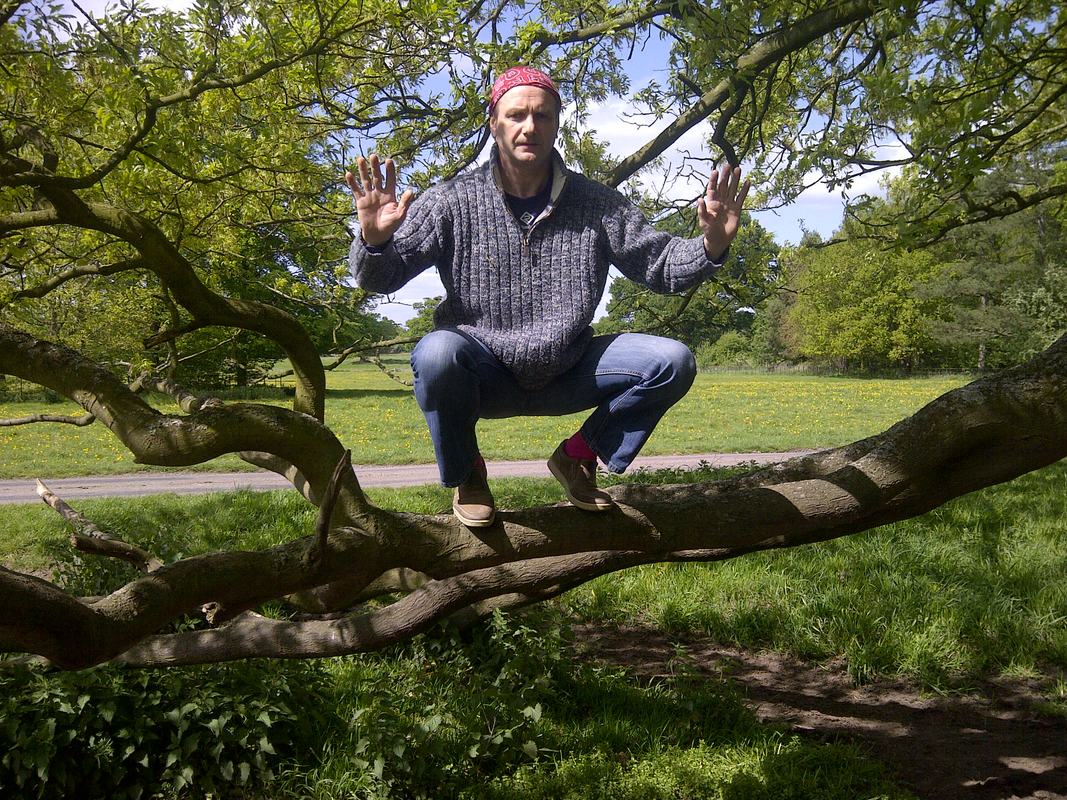
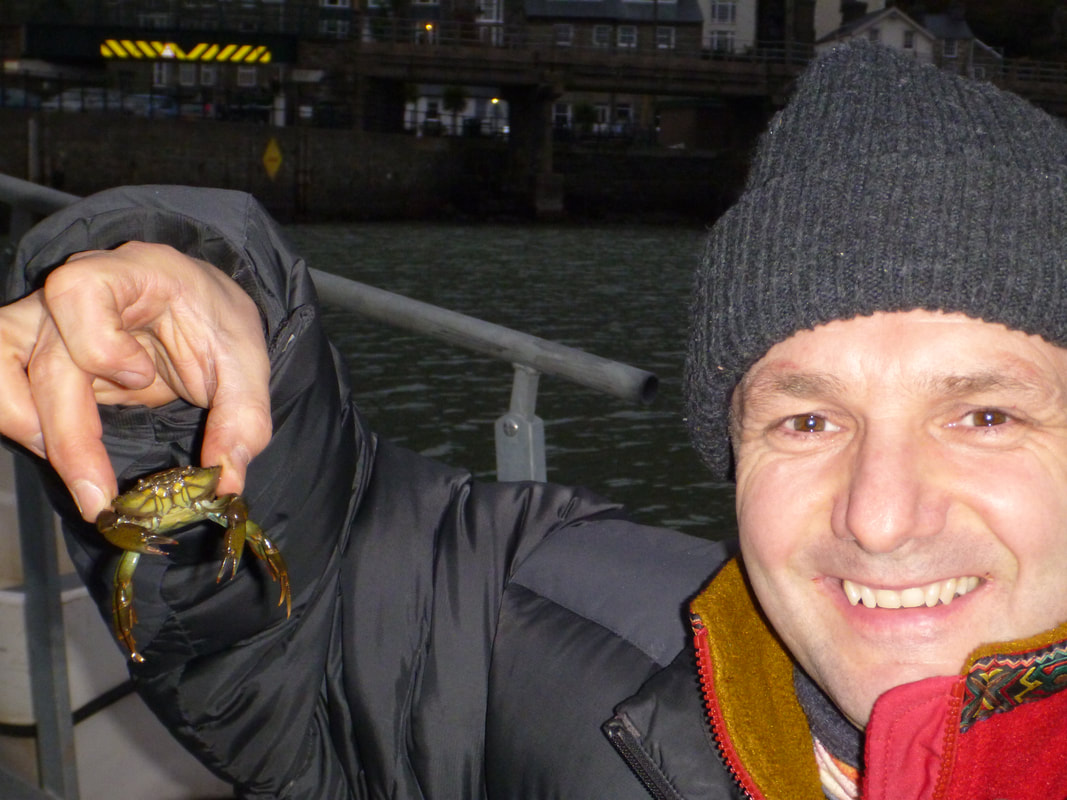

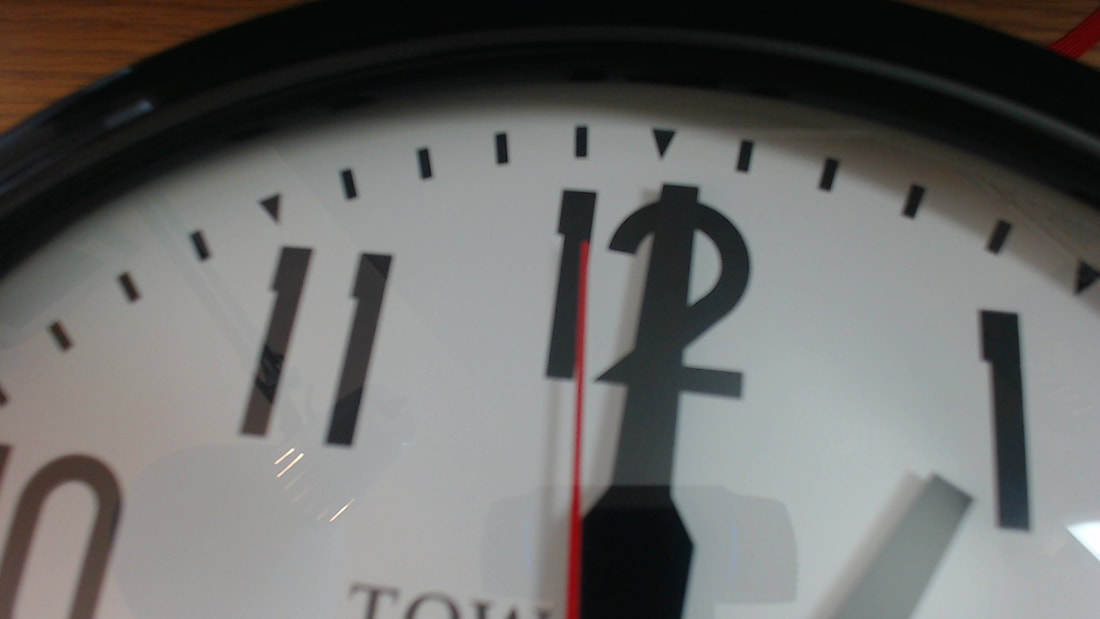
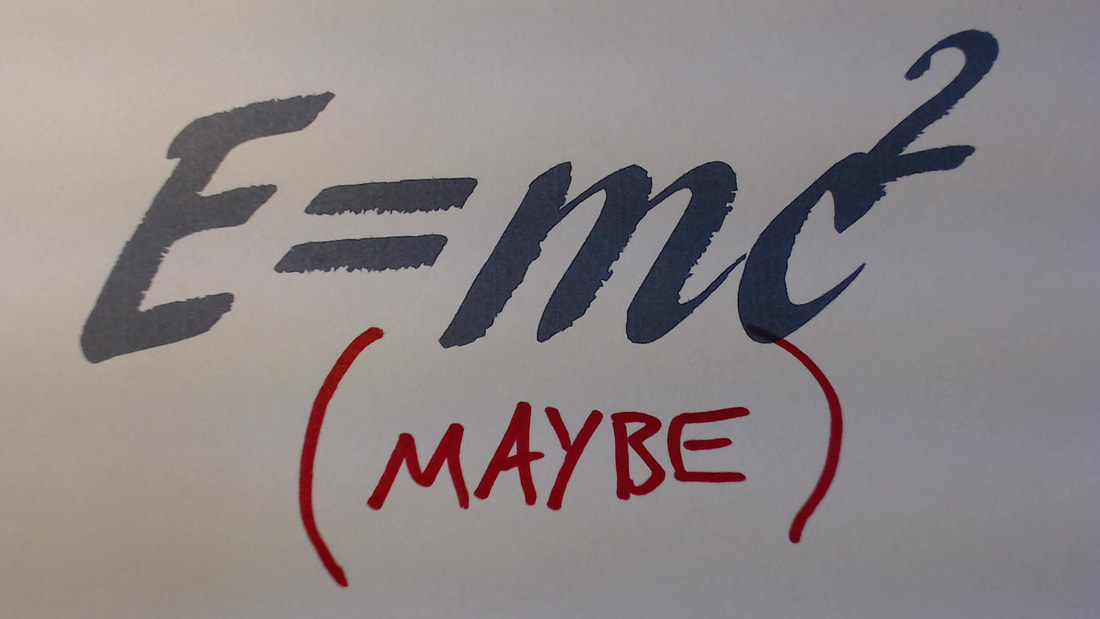
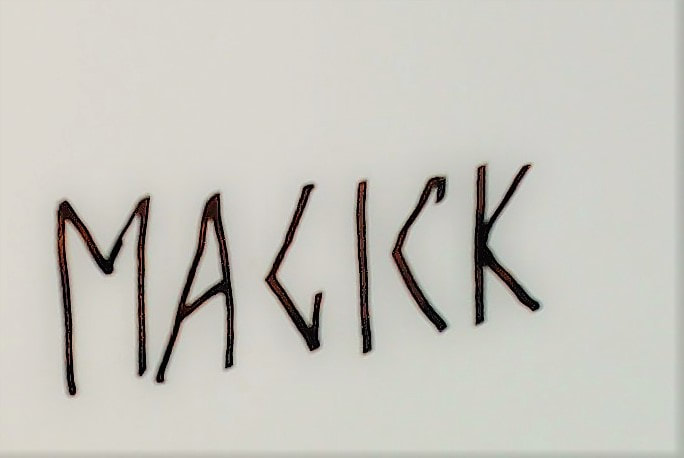
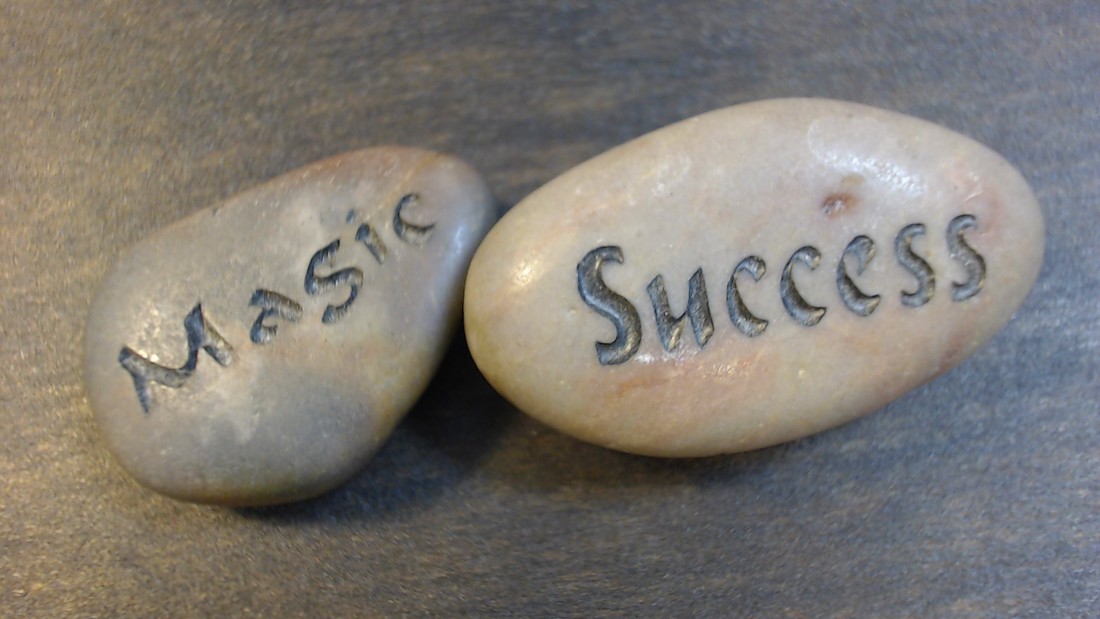
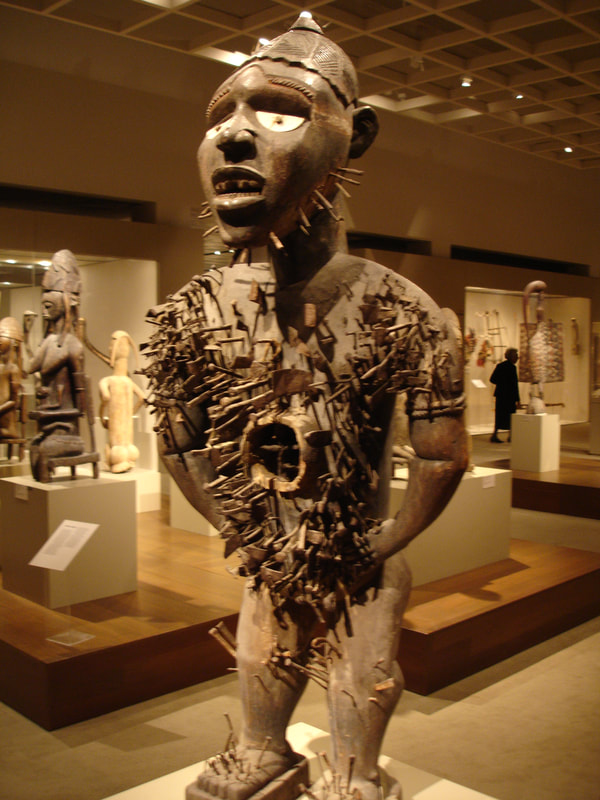
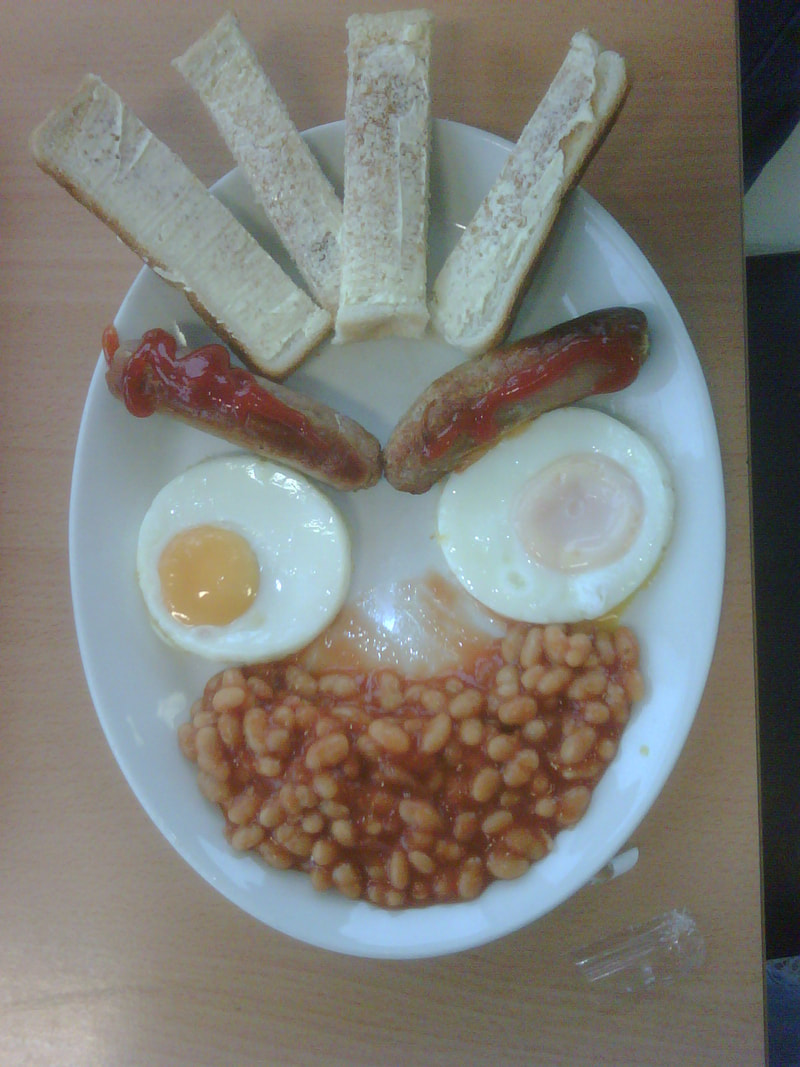

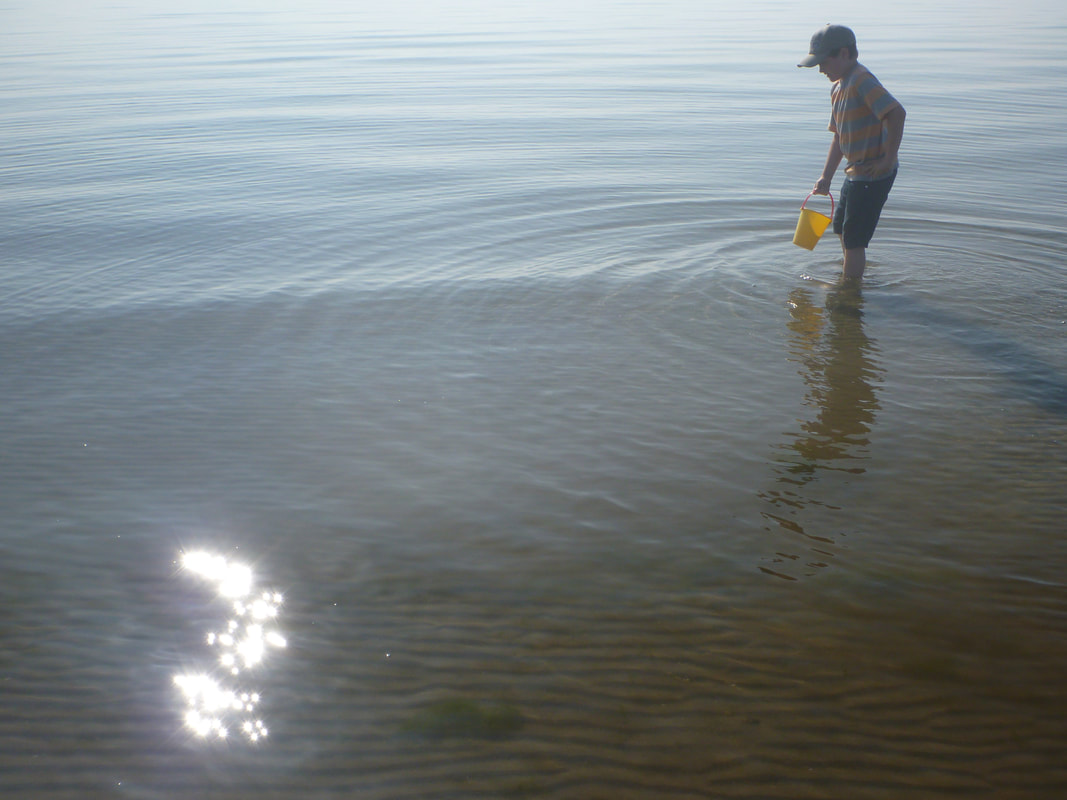
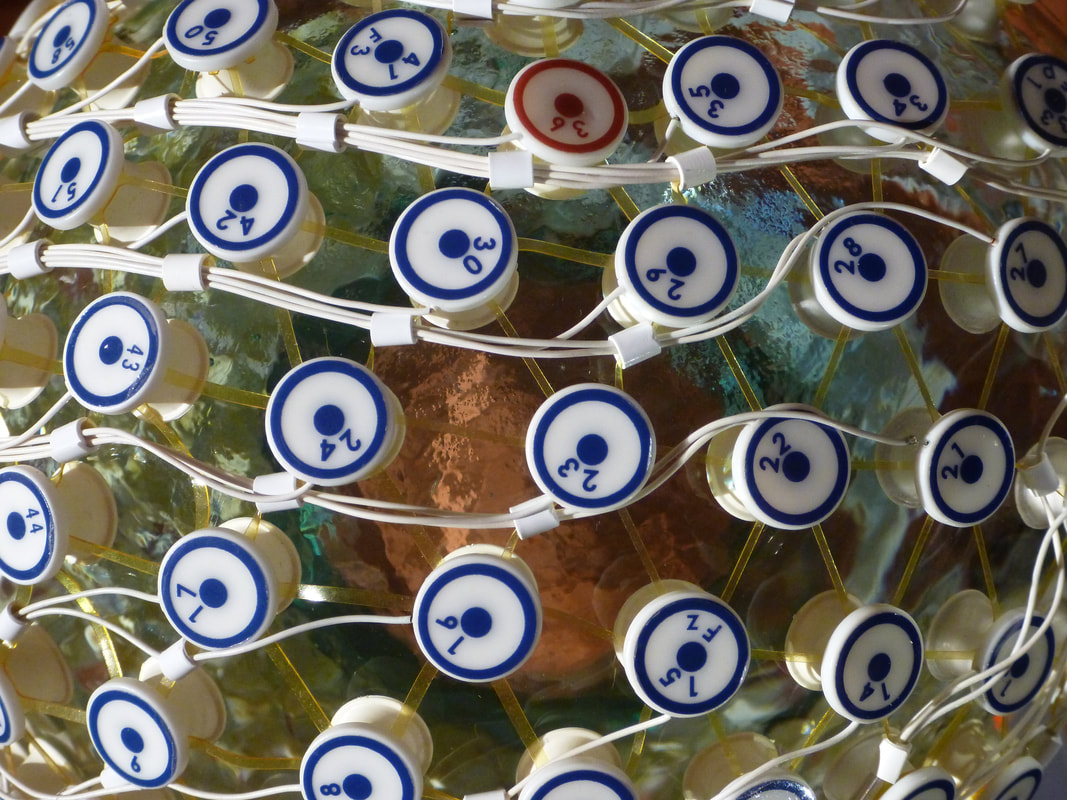

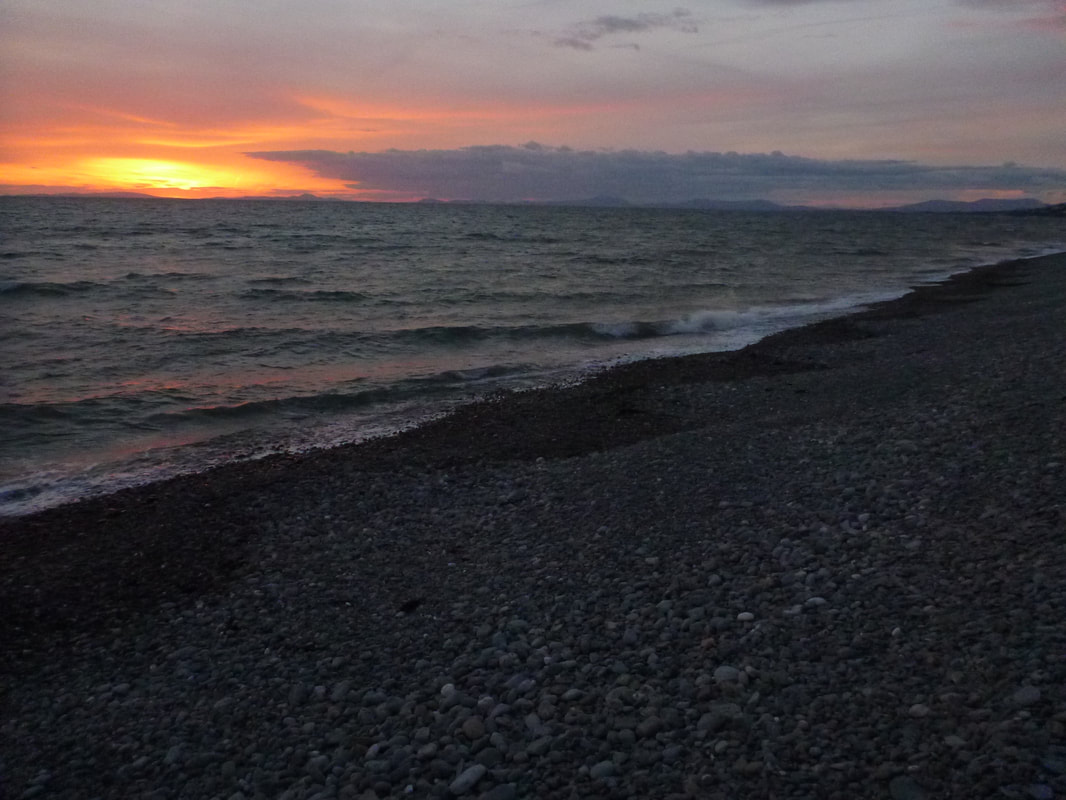
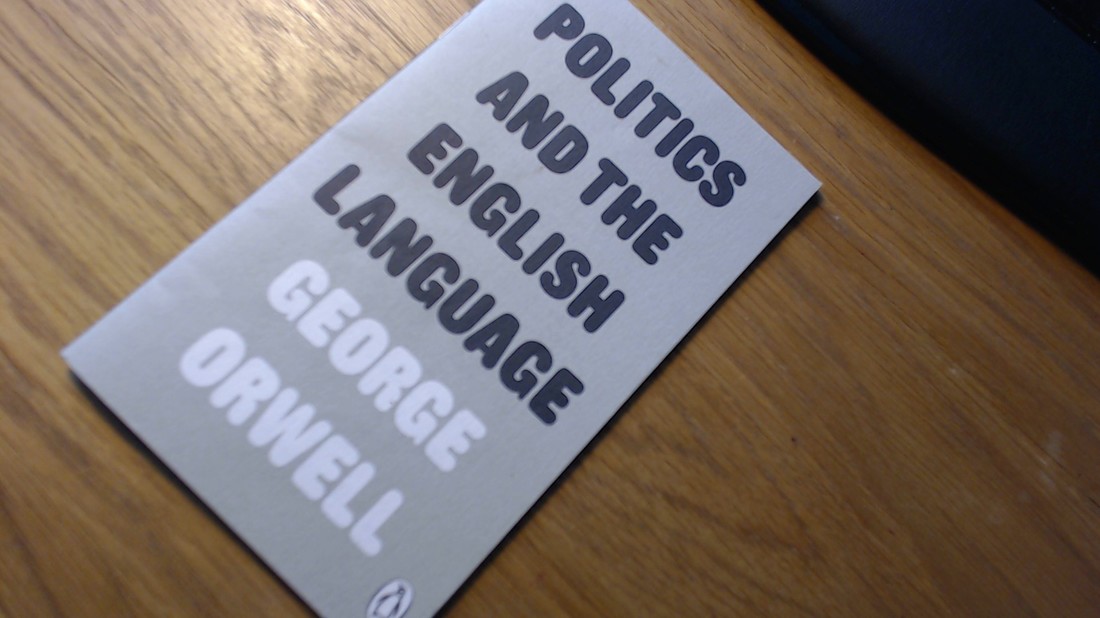
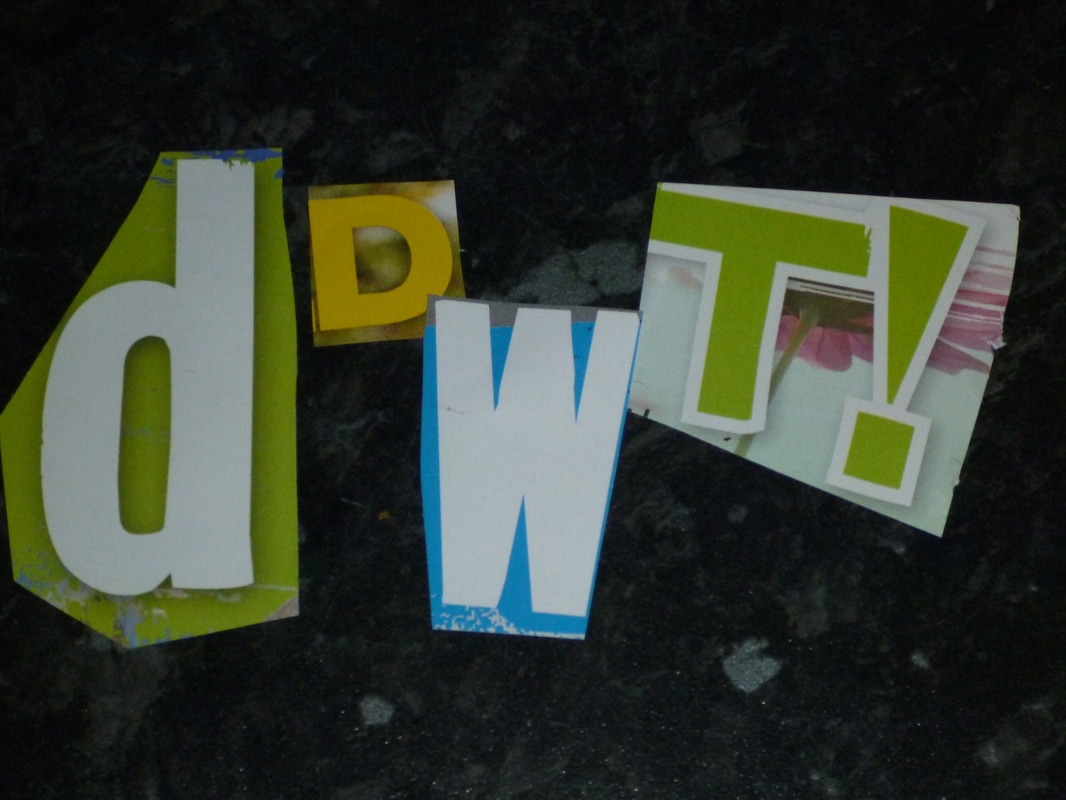
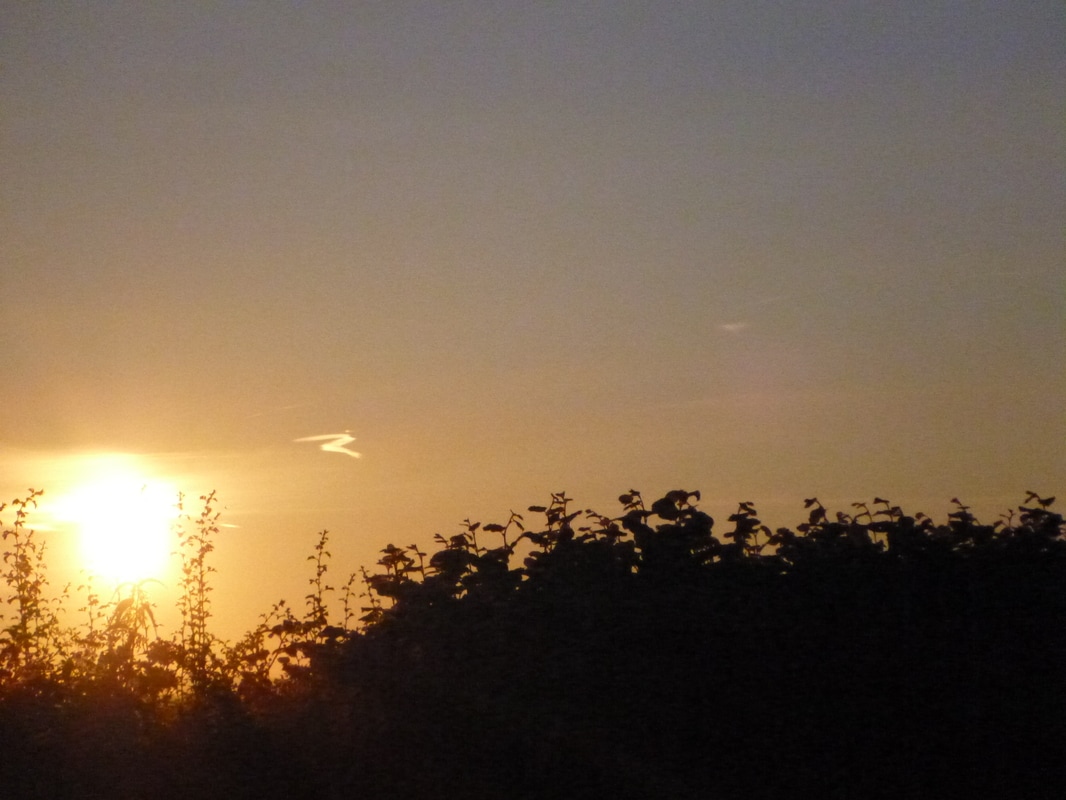
 RSS Feed
RSS Feed